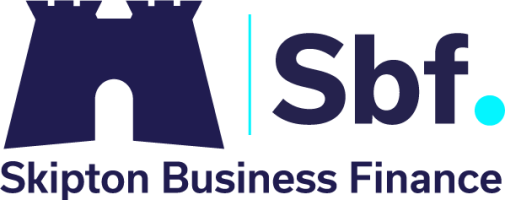Matthew Shepherd, our Chief Commercial Officer, spoke to us about the Deciding Factor of when a business needs to choose a lender.
How much does ESG figure in lender selection?
For the last few years, the focus of business owners has non-surprisingly been on surviving the ever-changing economic climate. Although the state of the economy is still uncertain, more and more businesses are beginning to return to pre-covid practices and seeing more and more normality return to their sectors. With priorities now being less focused on survival and more on growth and development, SMEs are beginning to prioritise sustainability and ESG as part of their business model but are being held back by economic uncertainties.
In a recent survey by the British Business Bank, results showed that a third (33%) of SMEs said they were making their business more environmentally sustainable, with a further 15% stating that it is something they want to improve. In a recent survey conducted by Skipton Business Finance on their client base, which covered UK-based businesses from a range of sectors. The results also showed that a third of businesses had already made or were currently making changes to be more sustainable.
Although SMEs are trying to prioritise ESG, 67% of those surveyed by British Business Bank said that current economic conditions were the top obstacle for them becoming more sustainable. Other reasons included ability to make changes to premises, access to external finance and availability or relevant advice. Similarly, in the research conducted by Skipton Business Finance, results showed that although 77% are feeling optimistic about 2023, many cited their concerns, including the uncertainty and lack of confidence in the current economic climate.
Influence on lending criteria
Of the SMEs that are prioritising sustainability as part of their business plan, 60% of these stated their main reason for this approach was to fulfil Corporate Social Responsibility (CSR), according to the British Business Bank. This suggests that it is not only a preference to be more sustainable as a business, but a policy which many are aiming to adopt.
With this in mind, it opens up the question of whether SMEs are being more selective with their lenders when looking for a finance product. More specifically, are they looking for a sustainable lender? What are the top priorities of businesses when looking for a lender and how highly does ESG rank?
We all know that there are numerous incentives and grants available to support a business’s own transition to, for example, zero and ultra-low emission vehicles. According to research by the British Business Bank, 11% of SMEs – roughly 700,000 smaller businesses – have accessed external finance to support net zero actions and 22% are prepared to access external finance to do so within the next five years.
But the specific question we are asking is: do businesses categorise ESG when choosing their financial partners in terms of how sustainable those lenders are?
For example, in 2022, the Skipton Group (which includes SBF) successfully cumulatively reduced single use plastic waste by 83% versus 2019 levels and in that very year accelerated several plans put in place that transitions the Group to net zero.
Would facts like this persuade a recruitment business to be more inclined, or more comfortable, to choose a lender knowing that they have an ESG strategy in place?
Skipton Business Finance also formed a charitable partnership strategy with charities Menfulness and The Pink Ribbon Foundation in addition to a donating a sizeable pledge to the Disasters Emergency Committee’s Turkey-Syria Earthquake Appeal to support urgent relief efforts. In fact, the Skipton Group’s charitable donations in 2022 was £1.2m.
Analytics would suggest that more and more businesses care about their own businesses becoming sustainable – to help protect the world we live and to be more charitable to those less fortunate than ourselves – but also more trends are emerging to suggest that those very businesses also care about the sustainability credentials of their supply chain.
Therefore, the question is: do businesses consider these increasing ESG frameworks when choosing an appropriate lender? When does this become a key requisite?







